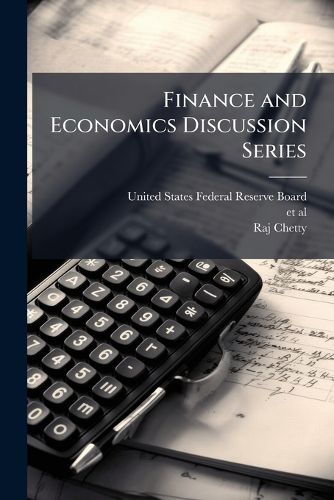Readings Newsletter
Become a Readings Member to make your shopping experience even easier.
Sign in or sign up for free!
You’re not far away from qualifying for FREE standard shipping within Australia
You’ve qualified for FREE standard shipping within Australia
The cart is loading…






This paper presents evidence that consumers underreact to taxes that are not salient and characterizes the welfare consequences of tax policies when agents make such optimization errors. The empirical evidence is based on two complementary strategies. First, we conducted an experiment at a grocery store posting tax inclusive prices for 750 products subject to sales tax for a three week period. Scanner data show that this intervention reduced demand for the treated products by 8 percent. Second, we find that state-level increases in excise taxes (which are included in posted prices) reduce alcohol consumption significantly more than increases in sales taxes (which are added at the register and are hence less salient). We develop simple, empirically implementable formulas for the incidence and efficiency costs of taxation that account for salience effects as well as other optimization errors. Contrary to conventional wisdom, the formulas imply that the economic incidence of a tax depends on its statutory incidence and that a tax can create deadweight loss even if it induces no change in demand. Our method of welfare analysis yields robust results because it does not require specification of a positive theory for why agents fail to optimize with respect to tax policies.
This work has been selected by scholars as being culturally important, and is part of the knowledge base of civilization as we know it. This work was reproduced from the original artifact, and remains as true to the original work as possible. Therefore, you will see the original copyright references, library stamps (as most of these works have been housed in our most important libraries around the world), and other notations in the work.
This work is in the public domain in the United States of America, and possibly other nations. Within the United States, you may freely copy and distribute this work, as no entity (individual or corporate) has a copyright on the body of the work.
As a reproduction of a historical artifact, this work may contain missing or blurred pages, poor pictures, errant marks, etc. Scholars believe, and we concur, that this work is important enough to be preserved, reproduced, and made generally available to the public. We appreciate your support of the preservation process, and thank you for being an important part of keeping this knowledge alive and relevant.
$9.00 standard shipping within Australia
FREE standard shipping within Australia for orders over $100.00
Express & International shipping calculated at checkout
This paper presents evidence that consumers underreact to taxes that are not salient and characterizes the welfare consequences of tax policies when agents make such optimization errors. The empirical evidence is based on two complementary strategies. First, we conducted an experiment at a grocery store posting tax inclusive prices for 750 products subject to sales tax for a three week period. Scanner data show that this intervention reduced demand for the treated products by 8 percent. Second, we find that state-level increases in excise taxes (which are included in posted prices) reduce alcohol consumption significantly more than increases in sales taxes (which are added at the register and are hence less salient). We develop simple, empirically implementable formulas for the incidence and efficiency costs of taxation that account for salience effects as well as other optimization errors. Contrary to conventional wisdom, the formulas imply that the economic incidence of a tax depends on its statutory incidence and that a tax can create deadweight loss even if it induces no change in demand. Our method of welfare analysis yields robust results because it does not require specification of a positive theory for why agents fail to optimize with respect to tax policies.
This work has been selected by scholars as being culturally important, and is part of the knowledge base of civilization as we know it. This work was reproduced from the original artifact, and remains as true to the original work as possible. Therefore, you will see the original copyright references, library stamps (as most of these works have been housed in our most important libraries around the world), and other notations in the work.
This work is in the public domain in the United States of America, and possibly other nations. Within the United States, you may freely copy and distribute this work, as no entity (individual or corporate) has a copyright on the body of the work.
As a reproduction of a historical artifact, this work may contain missing or blurred pages, poor pictures, errant marks, etc. Scholars believe, and we concur, that this work is important enough to be preserved, reproduced, and made generally available to the public. We appreciate your support of the preservation process, and thank you for being an important part of keeping this knowledge alive and relevant.